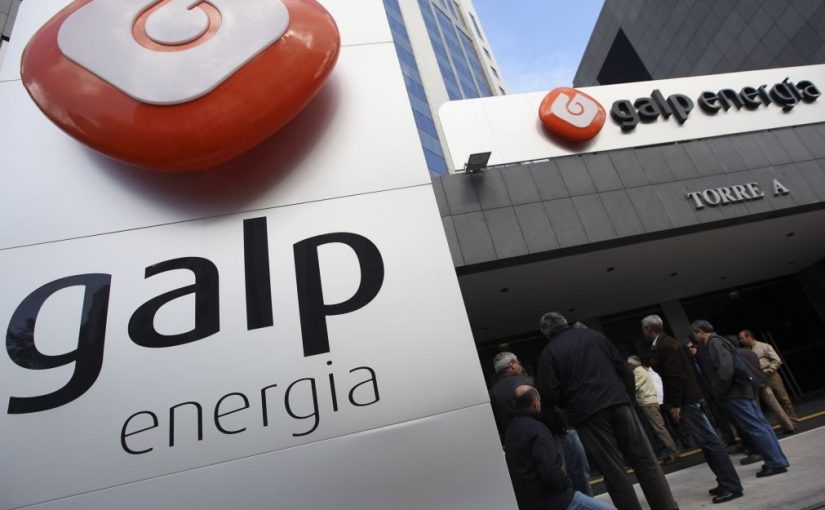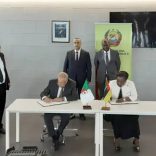Mozambique, Algeria set to deepen energy and gas ties
Mozambique: AT denies tax dispute with Galp

FILE - For illustration purposes only. [File photo: Lusa]
The president of Mozambique’s Tax Authority (AT) on Friday denied that there is a €162 million dispute with Portuguese oil company Galp, as has been publicly reported.
Questioned by Lusa on the sidelines of an AT event in Maputo, and without further comment, Aníbal Mbalango assured that the AT “has no dispute” with the Portuguese company over the sale of a stake in Mozambique.
The tax dispute, which the Centre for Public Integrity (CIP) classifies as a “test of Mozambique’s economic sovereignty”, arose following the sale in March of Galp’s 10% stake to Abu Dhabi National Oil Company (ADNOC) in Area 4 of the Rovuma Basin.
READ: Galp completes sale of 10% stake In Area 4 Mozambique to ADNOC for $881 mln
In an analysis of what it describes as a dispute, the CIP recalls that the AT “notified the oil company to pay a capital gains tax of €162 million, equivalent to 12 billion meticais”, an amount “which Galp itself confirms it was notified of in its official report to shareholders”.
“This figure results from the application of the effective rate of 17.6%, provided for in the Mozambican oil tax regime, to a capital gain estimated by the AT at around €920 million. In stark contrast, Galp contests the settlement, claiming a taxable capital gain of only €26 million, 35 times less than the amount calculated by the AT,” reads the CIP report.
For this civil society organisation, created in 2005 to monitor and promote the integrity and transparency of public authorities and the state, Galp’s position “is even more questionable when, in the same period, the company reported to its shareholders an accounting gain of €147 million from the same transaction, highlighting a glaring inconsistency between what it declares to the tax authorities and what it communicates to its investors”.
It adds that Galp’s decision “to resort to international arbitration at the World Bank’s International Centre for Settlement of Investment Disputes (ICSID), presumably on the basis of a stabilisation clause in the 2007 Concession Agreement, represents a tactic known as “war of attrition”’.
“This strategy aims to exploit the profound asymmetry of financial power between the company and the Mozambican state, forcing the country to accept an unfavourable agreement to avoid exorbitant legal costs, conservatively estimated at between US$6 million and US$8 million. These costs represent between 3.4% and 4.6% of the total amount of tax due,” the report states, in which CIP analyses the architecture of the transaction, the robustness of the Mozambican legal basis and Galp’s “likely litigation strategy”.
“It is concluded that Mozambique’s position is legally sound and in line with international best practices to combat tax erosion, i.e., the reduction of the tax base through abusive tax avoidance schemes. However, the country’s ability to assert its sovereign rights requires a firm response from the State, close scrutiny by civil society and responsible action by international partners, including the Portuguese State, which is Galp’s reference shareholder,” the CIP also points out.
Lusa reported on 4 July that the Mozambican government expects Galp to pay capital gains tax in 2025 and 2026 on the sale of its 10% stake in the Area 4 consortium.
“In 2024, Galp announced its intention to sell its 10% stake in Area 4 to the United Arab Emirates national oil company, ADNOC. Some transactions related to this operation are expected to be completed in 2025 and 2026, which should generate capital gains tax payments,” reads the Medium-Term Fiscal Scenario, approved in June by the Cabinet.
READ: CIP accuses Galp of testing Mozambique’s economic sovereignty – AIM
Area 4 is operated by Mozambique Rovuma Venture (MRV), a joint venture co-owned by ExxonMobil, Eni and CNPC (China), which holds 70% of the concession.
Galp announced on 28 March that it had completed the sale of its 10% stake in Area 4 in Mozambique for US$881 million (€816 million) to XRG, part of the Abu Dhabi National Oil Company (ADNOC).













Leave a Reply
Be the First to Comment!
You must be logged in to post a comment.
You must be logged in to post a comment.